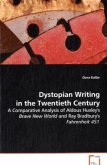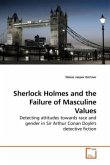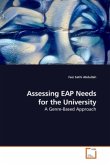J.D. Salinger's novel "The Catcher in the Rye"
introduced American literature to a new kind of
protagonist - the angst ridden teenager stuck in the
mire of adolescence. Holden Caulfield was frustrated,
cynical, and weary of a society that was full of
disappointment. His struggles with school, the
opposite sex, and the loss of his brother Allie
helped him to become the voice of a generation of
teenagers. Out of Holden's skepticism over his future
- "I think I am, but how do I know?" - a new literary
genre was created contending with the tumultuousness
of adolescence itself. Applying psychologist Erik
Erickson's concept of the "identity crisis," this
thesis will explore three representations of teen
angst adolescent identity conflict, and the problems
associated with it - identity foreclosure, negative
identity, and identity diffusion. Erickson's identity
crisis usefully describes the angst that accompanies
the grief, trauma, and maturation struggles that
characterize "The Catcher in the Rye," and its
progeny, the Children of Holden: Laurie Halse
Anderson's "Catalyst," Jean Ferris's "Bad," and
Stephen Chbosky's "The Perks of Being a Wallflower."
introduced American literature to a new kind of
protagonist - the angst ridden teenager stuck in the
mire of adolescence. Holden Caulfield was frustrated,
cynical, and weary of a society that was full of
disappointment. His struggles with school, the
opposite sex, and the loss of his brother Allie
helped him to become the voice of a generation of
teenagers. Out of Holden's skepticism over his future
- "I think I am, but how do I know?" - a new literary
genre was created contending with the tumultuousness
of adolescence itself. Applying psychologist Erik
Erickson's concept of the "identity crisis," this
thesis will explore three representations of teen
angst adolescent identity conflict, and the problems
associated with it - identity foreclosure, negative
identity, and identity diffusion. Erickson's identity
crisis usefully describes the angst that accompanies
the grief, trauma, and maturation struggles that
characterize "The Catcher in the Rye," and its
progeny, the Children of Holden: Laurie Halse
Anderson's "Catalyst," Jean Ferris's "Bad," and
Stephen Chbosky's "The Perks of Being a Wallflower."








